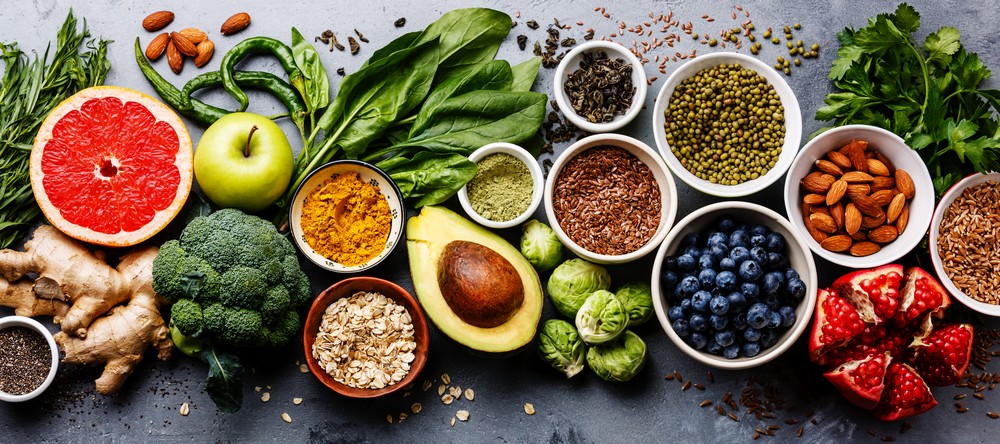How can a plant-based diet transform your health and well-being? What are the key components of a balanced vegan diet? Vegan nutrition is vibrant and diverse, offering numerous health benefits and culinary delights. Enrolling in advanced health training can provide the expertise needed to thrive on a plant-powered diet.
The Benefits of Advanced Dietary Training
An advanced nutrition course offers comprehensive knowledge about the intricacies of vegan nutrition. These courses cover essential topics such as nutrient balance, plant-based protein sources, and the impact of vegan diets on overall health.
The flexibility of online education allows you to fit your studies into your schedule. Whether you are a newcomer to veganism or want to improve your knowledge, these courses provide vital insights. Investing in your nutritional education can help you create a balanced and enjoyable vegan diet, leading to long-term health benefits.
Understanding Essential Nutrients in a Vegan Diet
An organised vegan diet can deliver all of the vital elements your body requires. Protein, calcium, iron, vitamin B12, and omega-3 fatty acids are among the most important nutrients. Understanding how to source these nutrients from plant-based foods is crucial for maintaining health.
Beans, lentils, tofu, and quinoa are abundant in protein. Dark, leafy greens, lentils, and fortified cereals contain iron. Calcium is present in fortified plant milks, tofu, and almonds. Vitamin B12, however, needs special attention and often requires supplementation or fortified foods. Flaxseeds, chia seeds, and walnuts contain vital omega-3 fatty acids. Knowing these sources helps ensure a balanced vegan diet.
Exploring Plant-Based Protein Sources
Protein is an essential ingredient for muscle regeneration, immunological function, and general health. Fortunately, there are numerous plant-based protein sources that are both nutritious and delicious. Legumes, nuts, and whole grains are always some great sources of protein and other necessary nutrients. They are versatile, and the following food items can be easily incorporated into diverse types of meals:
- Legumes: Chickpeas, lentils, and beans are high-protein foods.
- Nuts and Seeds: Almonds and chia seeds offer protein and healthy fats.
- Whole Grains: Quinoa, farro, and bulgur provide protein and fibre.
Adding these items to your meals can ensure you get enough protein. Combining different sources enhances the amino acid profile, making plant-based diets robust and nutritionally complete.
Creative Vegan Cooking Techniques
Exploring vegan nutrition opens up new creative cooking techniques. From baking with flax eggs to making creamy sauces with cashews, the possibilities are endless. Learning these techniques can transform simple ingredients into gourmet meals.
Experimenting with spices, herbs, and new cooking methods can enhance the flavor and texture of plant-based dishes. Roasting vegetables, marinating tofu, and blending smoothies are just a few ways to enjoy vegan cooking. Embracing these techniques makes vegan eating both exciting and satisfying.
For a fun and engaging way to explore vegan recipes, consider adding a homemade twist to your meals. Using the best pizza dough kit, you can create delicious vegan pizzas tailored to your taste with plant-based toppings like roasted vegetables, dairy-free cheese, and fresh herbs. A versatile option for family dinners or gatherings, this kit simplifies meal prep while keeping your nutrition goals on track.
The Role of Supplements
While a balanced vegan diet can meet most nutritional needs, some nutrients may require supplementation. Plant-based diets frequently include supplements such as vitamin B12, the antioxidant vitamin D, and omega-3 fatty acids. It is essential to consult with a healthcare provider to determine your specific needs.
Supplementing appropriately ensures you avoid deficiencies and maintain optimal health. Online courses often cover the role of supplements in vegan diets and provide guidance on how to incorporate them effectively.
Benefits of a Vegan Diet for Health
Adopting a vegan diet has several health benefits. According to research, plant-based diets can lower the chances of long-term illnesses like heart disease, diabetes, and some malignancies. Additionally, vegan diets are typically high in fibre, antioxidants, and phytonutrients.
These nutrients support overall health, boost the immune system, and promote a healthy digestive system. A vegan food plan can also help with weight management and energy levels. Understanding these benefits can motivate you to maintain a plant-powered lifestyle.
Environmental and Ethical Considerations
Beyond health, veganism has significant environmental and ethical implications. Plant-based food plans have a lower carbon footprint than animal diets. Reducing meat and dairy consumption can help conserve water, reduce greenhouse gas emissions, and preserve biodiversity.
Ethically, veganism aligns with the values of compassion and animal welfare. Choosing plant-based foods reduces the demand for factory farming and promotes more sustainable food systems. Awareness of these considerations can strengthen your commitment to a vegan lifestyle.
Enrolling in a nutrition course can equip you with the much-needed knowledge to create balanced and nutritious meals. Understanding essential nutrients, exploring plant-based protein sources, and learning creative cooking techniques are critical components of a successful vegan diet. Additionally, recognising the health benefits and environmental impact of veganism can inspire lasting dietary changes. Investing in your nutritional education is a step towards a healthier, more sustainable lifestyle.




